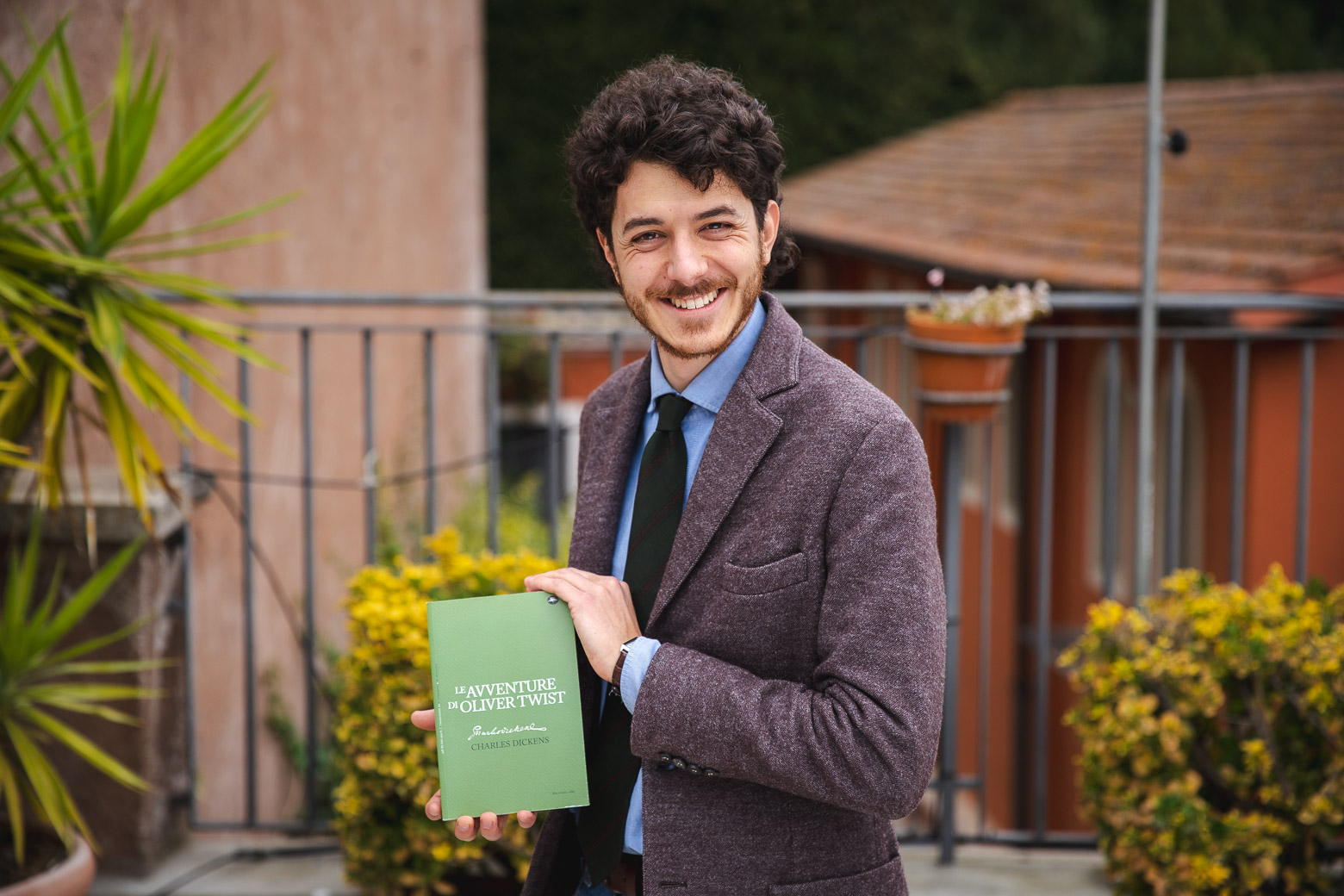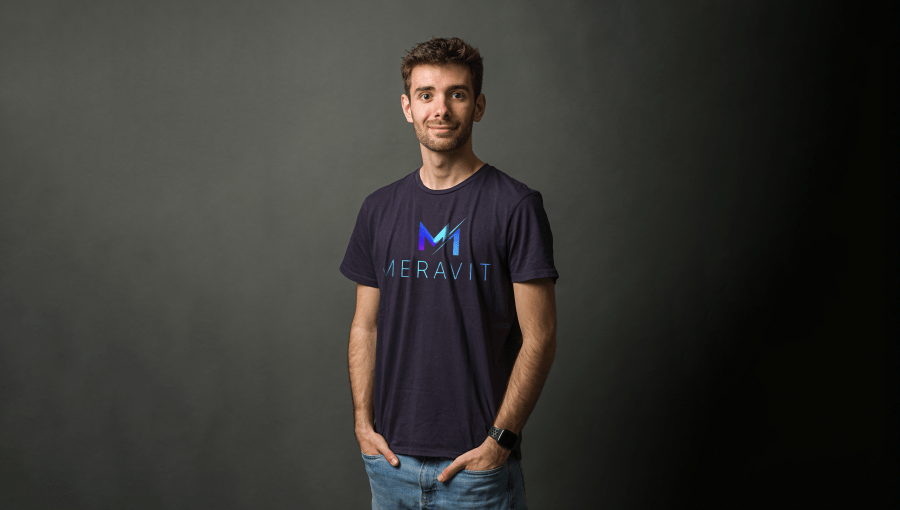JCU Alumnus and Professor Mattia Maglione Co-translates Oliver Twist
JCU alumnus and English professor Mattia Maglione recently co-translated Oliver Twist by Charles Dickens into Italian with translator Livio Crescenzi. The translation is called Le Avventure di Oliver Twist (Mattioli 1885, 2023).
Published in 1837 and set in London, Oliver Twist chronicles the events in the life of an orphan of obscure origins who, at the age of nine, escapes from the institution where he was raised and ends up in the clutches of a gang of criminals. His adventures intertwine with those of other characters, all grappling with the hard struggle for existence.

According to the publisher’s website, this new translation of Charles Dickens’s second novel is faithful to the original text and language, Le Avventure di Oliver Twist shows the energy, evocative power, and topicality of Dickens.
Professor Maglione holds a double B.A. in Communications and English Literature (Class of 2017) and an M.Phil. in Children’s Literature from Trinity College, Dublin, where he is also a Ph.D. candidate. He also wrote the glossary section of the Italian translation of Dickens’ The Pickwick Papers (2022) for Mattioli as well.
How would you say this new translation differs from previous ones? Why do you think it is necessary to retranslate classic books like this one?
Classics are everlasting masterpieces of world literature. Italian writer Italo Calvino was right in saying “A classic is a book that has never finished saying what it has to say,” and Oliver Twist is layered text to be read at any age, always managing to elicit a different reaction when we reread it.
I think just as it is one of Charles Dickens’ masterpieces, it is also a crucial piece of ‘pop’ culture. It has been adapted into movies and plays, and its characters have been illustrated multiple times over the years. Oliver is perhaps the most famous orphan in literature and his tales serve us not just to peek into the world of Victorian England but also to understand the evolution of Western society and its cultural values today. It was necessary to work on a new translation of the book to grant Italian readers a modernized and updated version of Oliver’s adventures and, thus, to keep this classic alive in the minds of future generations.
With my co-translator Livio Crescenzi we found that, in most Italian translations, Oliver Twist came across as an “exponentiation” of Dickens, as if the previous translations tried to mock Dickens’ language fundamentally creating a very dense version of the original text. Some terms in older translations are no longer part of the everyday Italian language and we felt the necessity to make sure that Oliver Twist was “stripped” of outdated jargon. This does not in any way mean changing the text, it simply means making sure that the meaning of each word in the original text is still accessible to Italian readers.
What was it like working in tandem with co-translator Livio Crescenzi? How did you approach the project and divide up the work?
Working with Livio was delightful. He has translated Mark Twain, André Gide, and lately James Joyce’s Ulysses into Italian, among many others. So, to have the chance to work with him has been truly an honor and mostly a constant learning experience. Translation, I believe, must always be a dialogue in which translators actively interact with each other throughout the process of exchanging ideas. Many issues come into question regarding direct translation, punctuation, flow, coherence, syntax, sentence structure, overall cohesion, and grammar just to name a few – and Livio and I often worked in tandem to ensure a transition from English to Italian.
We worked on the project for what, for me at least, seemed like quite a long time, by now I do not even remember when we started. To be a translating duo you must be willing to work on translating chunks of texts together while constantly comparing ideas. In this way, we made sure our translation always reflected the original text in the most accurate way possible.
What are you currently working on?
There are far too many translation projects bumping around in my schedule at the moment. But as of now, I am proud to say that I will keep working on translating Dickens for Mattioli. Livio Crescenzi and I meet quite often, there might be an announcement to be made rather soon!
I can also say that I am gladly contributing to the publication of Nicholas Nickleby, Dickens’ third novel. I will be working on the glossary of names like I did a few years ago for The Pickwick Papers, his first novel. These glossaries explain the possible references hidden within the names of Dickens’ characters.





